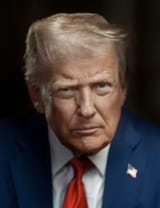>>512520385 (OP)
A tariff on imported goods leaves the importer with three options:
1. Pass the cost on to the consumer (making it less competitive with locally produced goods).
2. Don't sell the goods in the given country.
3. Move manufacturing of those goods into the target country to avoid the tariffs.
The tariff is paid before it becomes a good for sale. If the product is never sent because of the tariff, then it isn't a tax because the consumer won't be purchasing it.
Tariffs that are high enough will drive companies to move operations into the given country and keep domestic corporations from moving operations out of the country.
Example 1: India charges a 50% tariff on American motorcycles whereas America charges a 2.5% tariff on Indian motorcycles. Even if Harley Davidson were a perfect company, it would still be unable to make progress with these conditions.
Example 2: Thailand is a major manufacturer of European car brands. Thailand also has a 300% import tax on luxury European cars. And yet Thailand is not only given EU aid, but it's also allowed free access to the EU market with agricultural products like rice because of their "developing nation" status.
Example 3: All Western countries pay for the Universal Postage Union, which gives "developing" countries cheap freight rates and is the only reason why they can ship anything for an affordable price. While this is not officially a tariff, it amounts to the same result.
In some cases, it is true that tariffs bail out inefficient companies. However, China and the like run operating losses and sell below market prices while imposing tariffs on imports to protect their own interests. Not using tariffs in this case would be right in a world where nobody else subsidized their industry.
Tariffs can be a mechanism to correct market distortions and level the playing field for unscrupulous states and businesses.
 8/8/2025, 10:38:21 AM
No.512520385
>>512521459
>>512521703
>>512522489
>>512523020
>>512523447
>>512523505
8/8/2025, 10:38:21 AM
No.512520385
>>512521459
>>512521703
>>512522489
>>512523020
>>512523447
>>512523505

